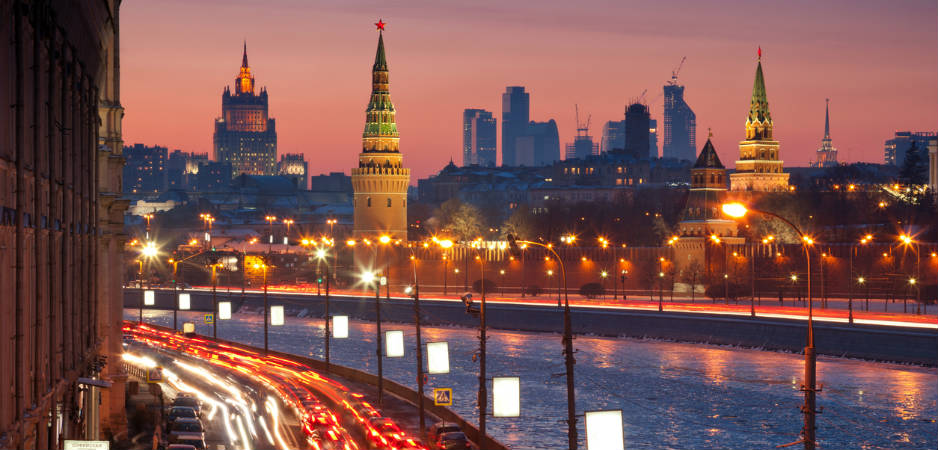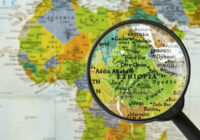When it comes to Europe’s dealing with Russia, there is a strong temptation to weigh individuals according to their pro- or anti-Moscow credentials.
On December 12, Russian Foreign Minister Sergey Lavrov was in Serbia with an invidious task to fulfil: convince Belgrade that Russia wants closer cooperation between the two countries while denying allegations it launched a coup attempt against neighboring Montenegro from Serbian soil. Ostensibly there to attend a meeting of Black Sea foreign ministers, Lavrov’s arrival comes just weeks after Serbia reportedly expelled several Russian citizens for their part in attempting to overthrow the Montenegrin government last October.
But a closer look at the allegations reveals a startling fact: that in its quest to counter Russia by sanctifying a host of what appear to be anti-Russian figures, the European Union (EU) has gone astray—and not just in Montenegro.
Was There a Coup?
The circumstances surrounding the alleged coup attempt remain murky—murky enough for some commentators to argue that the entire plot, for which 20 Serbian paramilitaries and two Russian nationalists were arrested, was actually a false flag operation cooked up by the former Montenegrin prime minister to bolster his party’s support. That observers are left pondering which outlandish conspiracy theory is actually true tells us a lot about how careful the EU needs to be when it comes to distinguishing the good guys from the bad on its periphery.
Milo Djukanovic, the pro-NATO Montenegrin prime minister who stepped down after his party won the election in October, and whom the alleged coup was supposed to overthrow, has a long history of painting his opposition as Russian fifth columns in the Adriatic state. Prior to stepping down, Djukanovic had served as either president or prime minister of Montenegro almost without interruption since 1991. Over that time, he has profited politically by portraying the country as ever on the verge of being overrun by Moscow, and therefore in need of EU and NATO membership. He has also profited financially by letting Montenegro be overrun by international crime gangs.
Citing the need for a return to calm after the events on election day as his reason for stepping down, critics point instead to the widespread allegations of electoral abuses and Djukanovic’s desire not to push his luck with the EU too far. It’s not even the first time a supposed election-day “coup attempt” has been foiled by Djukanovic. In the 2006 parliamentary elections, an Albanian “terrorist cell” was raided before it could carry out a planned attack on Montenegrin politicians. All charges were later dropped against the alleged conspirators, and Djukanovic was awarded a prize for the peaceful passage of the elections.
Unsurprisingly, Djukanovic’s opponents aren’t any more convinced by stories of external terrorist threats to Montenegro’s elections today than they were 10 years ago.
Darling of Democracy
The now-former premier is not the only figure whose glaring faults the West is willing to ignore if it means gaining another ally against Russia. Since his release from prison after a 10-year sentence for corruption, Mikhail Khodorkovsky has emerged as one of the loudest voices standing up to Vladimir Putin and advocating for change in Russia.
In a string of recent high-profile interviews, Khodorkovsky called on the West and Donald Trump to take a stronger line against Russia. Khodorkovsky, the founder of oil company Yukos, rose to fame due to the lengthy international legal proceedings revolving around the way the company was allegedly expropriated by the Russian state. In 2014, he secured a $50-billion award, which was overturned earlier this year by a Dutch court.
Khodorkovsky’s crusade suffered another defeat in late November, after a Paris court decided to unfreeze several Russian assets that had been targeted by Yukos shareholders. Moscow has maintained that because the shareholders are Russian, the case should have been heard in a Russian court. For their part, Khodorkovsky and the claimants distrusted the Russian justice system, which they held responsible for the bankruptcy of Yukos.
Despite making his fortune as one of post-communist Russia’s richest men as chairman of Yukos—Russia’s largest oil company in the early 2000s—Khodorkovsky reinvented himself as the darling of democracy advocates after he was imprisoned and the company’s assets were seized. However, by bestowing men like Khodorkovsky with unquestioning approval, critics of the Kremlin’s abuses are sadly weakening their own arguments. Few seem to remember that in the late 1990s, Khodorkovsky was viewed as one of Russia’s most ruthless profiteers.
Indeed, the story of how the former oligarch acquired his wealth would, under other circumstances, scandalize Western publics. When Boris Yeltsin’s government sold off the multibillion-dollar oil company Yukos in 1995, Khodorkovsky picked it up for a fraction of the cost and managed it until his arrest on fraud and tax evasion charges in 2003. During that time, he built a complicated offshore apparatus that allowed him to escape taxes while his chief of security was implicated in the 1998 murder of Siberian mayor Vladimir Petukhov, who angered Yukos by leading a protest that interfered with a shareholder meeting.
Khodorkovsky’s offshore activities prompted the largest money-laundering investigation in US history, with the government pursuing allegations Khodorkovsky’s companies illegally moved between $4.2 and $10 billion through the Bank of New York.
Nearly two decades later, Khodorkovsky has transformed his international profile into that of an admirable dissident. His image inside Russia, though, is not nearly as positive.
When it comes to Europe’s dealings with an antagonist like Russia, there is a strong temptation to weigh individuals according to their putative pro- or anti-Moscow credentials. From Djukanovic’s organized-crime activities at the expense of Montenegro’s impoverished population to Khodorkovsky’s nebulous rise to wealth, this strategy has left the European Union vulnerable to embarrassing contradictions. While Russia should be called out and held accountable for its human rights abuses and aggressive foreign policy, the EU should at least make sure its champions are at least worthy to cast the first stone.
The views expressed in this article are the author’s own and do not necessarily reflect Fair Observer’s editorial policy.
Photo Credit: Mordolff
Support Fair Observer
We rely on your support for our independence, diversity and quality.
For more than 10 years, Fair Observer has been free, fair and independent. No billionaire owns us, no advertisers control us. We are a reader-supported nonprofit. Unlike many other publications, we keep our content free for readers regardless of where they live or whether they can afford to pay. We have no paywalls and no ads.
In the post-truth era of fake news, echo chambers and filter bubbles, we publish a plurality of perspectives from around the world. Anyone can publish with us, but everyone goes through a rigorous editorial process. So, you get fact-checked, well-reasoned content instead of noise.
We publish 2,500+ voices from 90+ countries. We also conduct education and training programs
on subjects ranging from digital media and journalism to writing and critical thinking. This
doesn’t come cheap. Servers, editors, trainers and web developers cost
money.
Please consider supporting us on a regular basis as a recurring donor or a
sustaining member.
Will you support FO’s journalism?
We rely on your support for our independence, diversity and quality.






